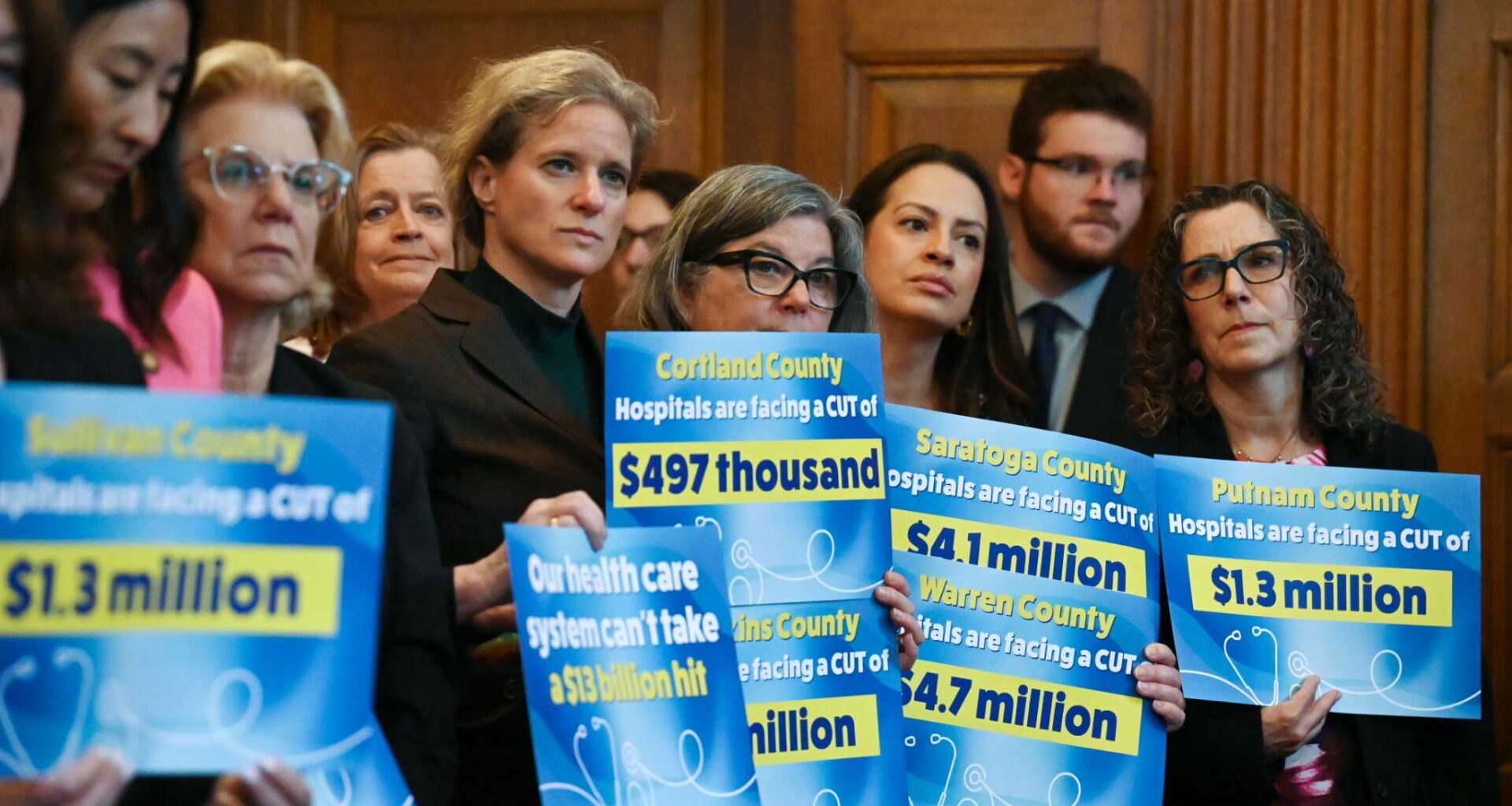New York Democrats have decried the incoming cuts to state Medicaid programs and have in many cases batted away assertions there is waste within the system. A state comptroller’s audit released Tuesday found evidence of hundreds of millions of dollars of potentially improper payments for non-N.Y. residents.
ALBANY — New York may have improperly paid $1.2 billion in Medicaid managed care payments for people who live out of state, according to a state comptroller’s audit released Tuesday.
States are not allowed to pay Medicaid for nonresidents under federal law. But the residencies of thousands of people may not have been thoroughly verified by the New York Department of Health, which manages and makes payments for New York’s Medicaid program, according to the audit.
Article continues below this ad
The audit is the latest finding from state Comptroller Thomas P. DiNapoli’s office that identifies overspending in New York’s Medicaid program. It covered the period between 2017 and 2024. And it comes as federal cuts to state Medicaid programs are incoming under the Trump administration, and as Republicans allege widespread fraudulent and wasteful spending in the subsidized health insurance program that provides coverage for millions of Americans nationwide.
Nearly a third of all New Yorkers receive assistance for health care through the state’s Medicaid program.
Medicaid cuts at the federal level under an omnibus tax-and-spend policy package signed this summer will result in up to 1.5 million New Yorkers becoming uninsured, the state Department of Health has said. In recent years, spending through Medicaid has ballooned and the program is widely acknowledged as a top driver of state expenses every year.
The bulk of the overspending appears to be concentrated through payments the Department of Health made to managed care plans on behalf of users, or large health care insurance companies that act as middlemen between health care providers and Medicaid.
Article continues below this ad
Part of that $1.2 billion price tag: monthly payments that the Department of Health made to managed care plans totaling up to $509 million for over 155,000 members who may no longer be living in New York, according to the audit.
Residency can be a complicated thing to prove, although there’s a federal database known as the Public Assistance Reporting Information System that can provide “matches” if someone is flagged as receiving benefits in multiple states.
However, the comptroller’s audit said the Department of Health did not begin submitting certain enrollment data until 2017 or start conducting reviews on possible duplicate payments until 2019, at which point it had paid $1.5 billion in premium payments for unreviewed members.
In a statement, Department of Health spokeswoman Marisa Crary said that part of the issue was a legal requirement during the coronavirus pandemic that prohibited states from ending Medicaid coverage even despite a change in residency.
Article continues below this ad
Crary said the agency has now resolved issues with the federal database that sifts through benefits data across states.
“Human review and quality control measures have been implemented at both the state and local levels to ensure data accuracy and appropriate case handling,” Crary said.
She added that the Office of the Medicaid Inspector General reviewed some of the stated overpayments that the comptroller had flagged and found them to be proper based on updated eligibility verifications.
Most of the state’s Medicaid members are enrolled in managed care plans, which are responsible for ensuring members have access to a range of health care service plans. New York has been increasingly reliant on managed care over the decades, and companies have flocked to provide such plans.
Article continues below this ad
New Jersey, Florida and Pennsylvania were the three states where New York directed most of the unverified Medicaid payments to recipients.
Managed care plans represent among the largest contracts New York holds with outside vendors. They are intended to help states reduce Medicaid program costs and better streamline health care delivery.
An August audit found the Department of Health had failed to transfer eligible individuals to Medicare, costing taxpayers around $300 million in excess Medicaid spending. Other audits and reports have identified millions of dollars in overpayments or incorrect spending within various parts of the program.
The White House, under the administration of President Donald J. Trump, is seeking nearly $1 trillion in cuts to Medicaid. New York health officials and many Democratic lawmakers have alleged that this will translate to billions of dollars in losses to state health care facilities, as well as having ripple effects for jobs in that industry.
Article continues below this ad
But at the same time, the state’s Medicaid program has long been troublesome for state budget officials, who say that spending has increased rapidly over the past several years.
That growth is not slowing; the state’s share of Medicaid spending is projected to increase $6 billion in the next fiscal year, largely due to changes to provider reimbursement rates.

